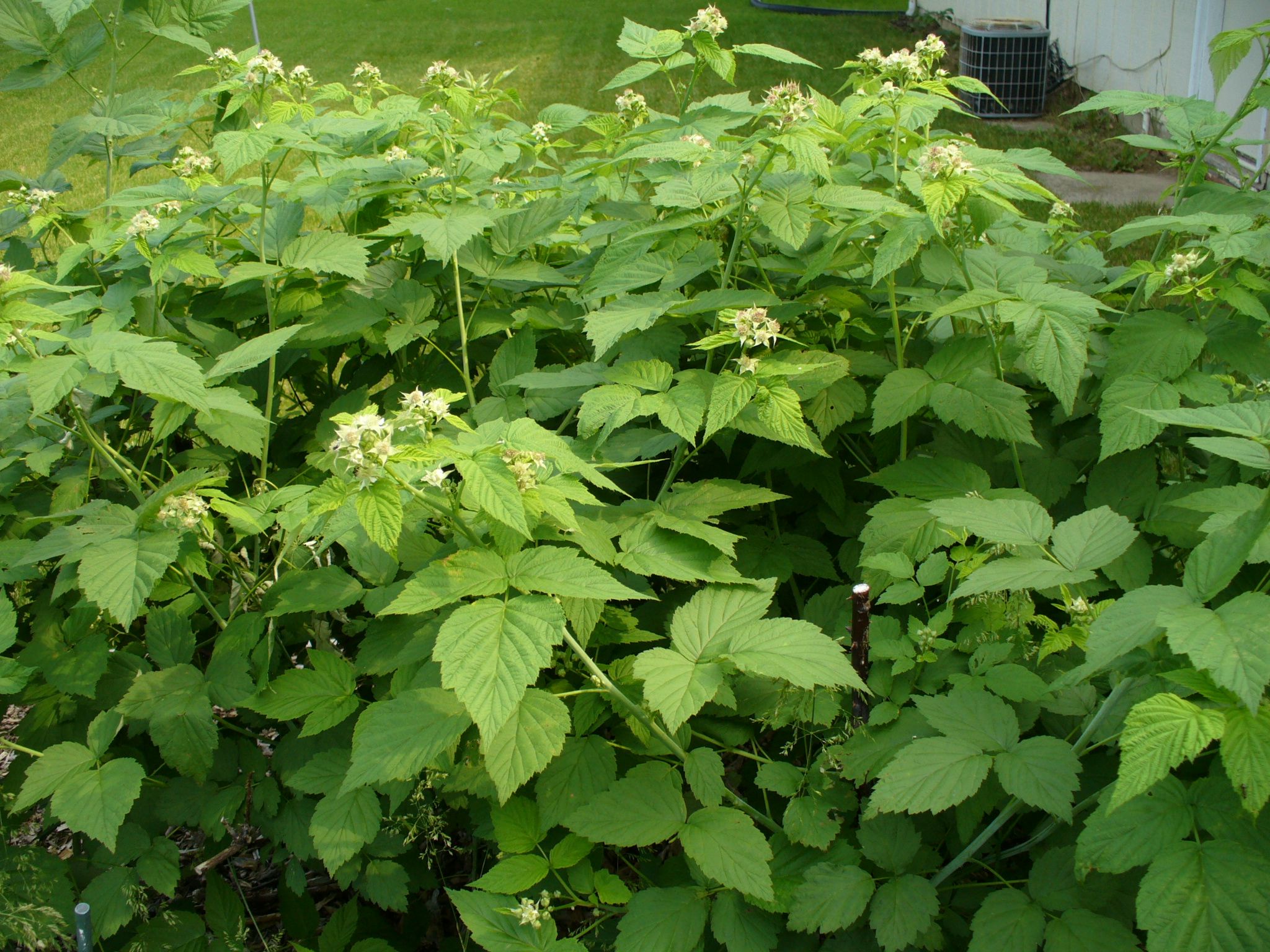 When deciding which varieties of fruit to cultivate, I chose to plant black raspberries on my small suburban lot. They grow wild in Wisconsin, but fighting through swarms of mosquitos, brush and thorns to pick berries was not my idea of fun. For the last two years, I have received a large crop of juicy black berries that I enjoy eating fresh or process into black raspberry jam to spread on toast. Therefore, I was interested to learn that black raspberries have demonstrated cancer preventative properties in animal models of chemically induced oral and colon cancers as well as cultured oral cancer cells. Due to similarities between oral and cervical cancers, researchers recently tested if the beneficial effects of this berry could extend to human cervical cancer cells.
When deciding which varieties of fruit to cultivate, I chose to plant black raspberries on my small suburban lot. They grow wild in Wisconsin, but fighting through swarms of mosquitos, brush and thorns to pick berries was not my idea of fun. For the last two years, I have received a large crop of juicy black berries that I enjoy eating fresh or process into black raspberry jam to spread on toast. Therefore, I was interested to learn that black raspberries have demonstrated cancer preventative properties in animal models of chemically induced oral and colon cancers as well as cultured oral cancer cells. Due to similarities between oral and cervical cancers, researchers recently tested if the beneficial effects of this berry could extend to human cervical cancer cells.
Zhang et al. did not use whole raspberries or even raspberry juice. Instead the raspberries were freeze-dried, pulverized, extracted with ethanol and lyophilized before resuspending the resulting residue in DMSO at a concentration of 200mg/ml. Analysis of this end product by high performance liquid chromatography (HPLC) determined that the main compounds present were anthrocyanins, which have been implicated in preventing tumors in previous research. This black raspberry extract was then tested with three common human cervical cancer cell lines: HeLa, SiHa and C-33A.
To assess the effect of the extract, the researchers examined its ability to inhibit cell growth. All three cervical cancer cell lines were seeded in 96-well plates and after 24 hours, treated with vehicle (0.1% DMSO) as a control or 25, 100 or 200µg/ml of extract, and inhibition of cell growth was assessed at 1, 3 and 5 days. These concentrations of raspberry extract were assayed for any cytotoxic effects on the cells, but none were found. Cell viability was characterized using cleavage of tetrazolium salt, and the extract demonstrated a minimum of 52% inhibition of cell growth in all cell lines, with the greatest effect found in C-33A cells (67% inhibition). The greatest effect was seen with cells exposed to 200µg/ml of black raspberry extract for 5 days, but even 25µg/ml for 1 day was enough to elict a 13% decrease in C-33A cell growth, 32% reduction in SiHa cell growth and 39% growth inhibition in HeLa cells. Exposure to a fixed concentration of extract over 1, 3 and 5 days resulted in decreasing cell growth with longer exposures. Thus, both concentration of the extract and exposure interval affected cell growth inhibition in all three cervical cancer cell lines.
Does this growth inhibition persist if the extract is removed from the culture medium? All three cell lines were exposed to black raspberry extract for 3 days, followed by a medium change and addition of fresh medium containing either DMSO or the same concentration of extract. The cells were grown for another 2 days and the cell viability assessed. Those cells exposed to the extract for only three days had comparable growth inhibition to those exposed for five days (e.g., 38% versus 43%, respectively, for HeLa cells). The researchers did not indicate which concentration of black raspberry extract was used for this experiment, but the effect was demonstrated in three separate trials under the same conditions. Therefore, removing the black raspberry extract for 2 days does not significantly reverse the growth inhibition in the tested cell lines.
Complementing growth inhibition is the possibility that black raspberry extract is inducing apoptosis. After treating the cervical cancer cells for 3 or 5 days with 200µg/ml of extract, the three cell lines were stained with Annexin V and sorted by flow cytometry. In all cases, the number of apoptotic cells was increased for cells exposed to extract versus the DMSO control, and the effect was greater at 5 days compared to 3 days. The greatest effect was seen with SiHa cells (9.3-fold greater apoptotic cells after 5-day treatment) and the lowest with C33-A cells (4.3-fold more apoptotic cells after 5-day treatment). Visual confirmation of apoptosis was made by staining cells with Hoechst 33342 after 3-day exposure to black raspberry extract to detect nuclear changes like chromatin condensation.
Eating black raspberries is certainly good for you (and I love black raspberry jam), but this will not replicate the effects seen in this research. The authors extracted and concentrated the black raspberry compounds and tested the extract on cultured cells. However, these promising results do offer an avenue of research to explore further as scientists look for compounds useful in preventing cancer.
Reference
Zhang Z, Knobloch TJ, Seamon LG, Stoner GD, Cohn DE, Paskett ED, Fowler JM, & Weghorst CM (2011). A black raspberry extract inhibits proliferation and regulates apoptosis in cervical cancer cells. Gynecologic oncology, 123 (2), 401-6 PMID: 21831414
Sara Klink
Latest posts by Sara Klink (see all)
- A One-Two Punch to Knock Out HIV - September 28, 2021
- Toxicity Studies in Organoid Models: Developing an Alternative to Animal Testing - June 10, 2021
- Herd Immunity: What the Flock Are You Talking About? - May 10, 2021

Thank you I have Black Raspberry supplement and just trying to remember what it is good for Thank you